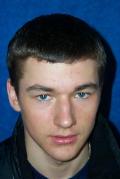Edgars Piksons, biathlete who has represented Latvia at two Olympic Games, has tested positive for 19-norandrosterone, the International Biathlon Union announced this morning.

A urine sample was collected in an out-of-competition test on September 22. The “A” sample has tested positive, and Piksons recently waived his right to be present at the opening of the “B” sample.
31-year-old Piksons represented Latvia in the 2006 Torino and 2010 Vancouver Olympic Games. His best international finishes came in 2011, when he placed eighth in the 10 k sprint at World Championships. In 2014, Latvia only received quota spots for one male and one female biathlete; the men’s spot went to budding star Andrejs Rastorgujevs, who turned it into a ninth-place finish in the 12.5 k pursuit.
19-norandrosterone is a common metabolite of the common anabolic steroid norandrolone and related hormones. Norandrolone is very similar to testosterone, but has a key structural difference in that it lacks a methyl group on the 19th carbon. It has been used since the 1950’s as a popular way to increase muscle mass, strength, and sports performance. It has been prohibited in Olympic sport since 1976. FIFA calls it one of the most commonly-used steroids in sports. A rash of suspensions for norandrolone use have occurred in the last two decades, including high-profile bans in track and field, rugby, and tennis. American baseball and basketball players have also been implicated in norandrolone use, and sometimes suspended. Over 300 positive tests were recorded in 1999 alone.
Recently, questions have been raised regarding whether 19-norandrosterone can be produced naturally by the body and thus be present in the urine of individuals who are not taking anabolic steroids. Several studies have found this to be the case, but in several, methodological limitations complicate the interpretation of results. A study by the IOC of over 600 athletes at the 1998 Olympic Games, however, showed that only five (all of whom were women, which may have to do with interference and hormones in oral birth control formulas) had urine concentrations of 19-norandrosterone above the limit.
The IBU is referring the case to its Anti-Doping Hearing Panel.
Norandolone has also been involved in several cases where athletes took supplements that ended up being contaminated. For instance, U.S. swimmer Kicker Vencill was initially banned for four years for testing positive for norandrolone, but had his supplements tested and was able to prove that his “Ultimate Nutrition Super Complete multivitamin” was contaminated. He eventually won a lawsuit against the supplement company.



